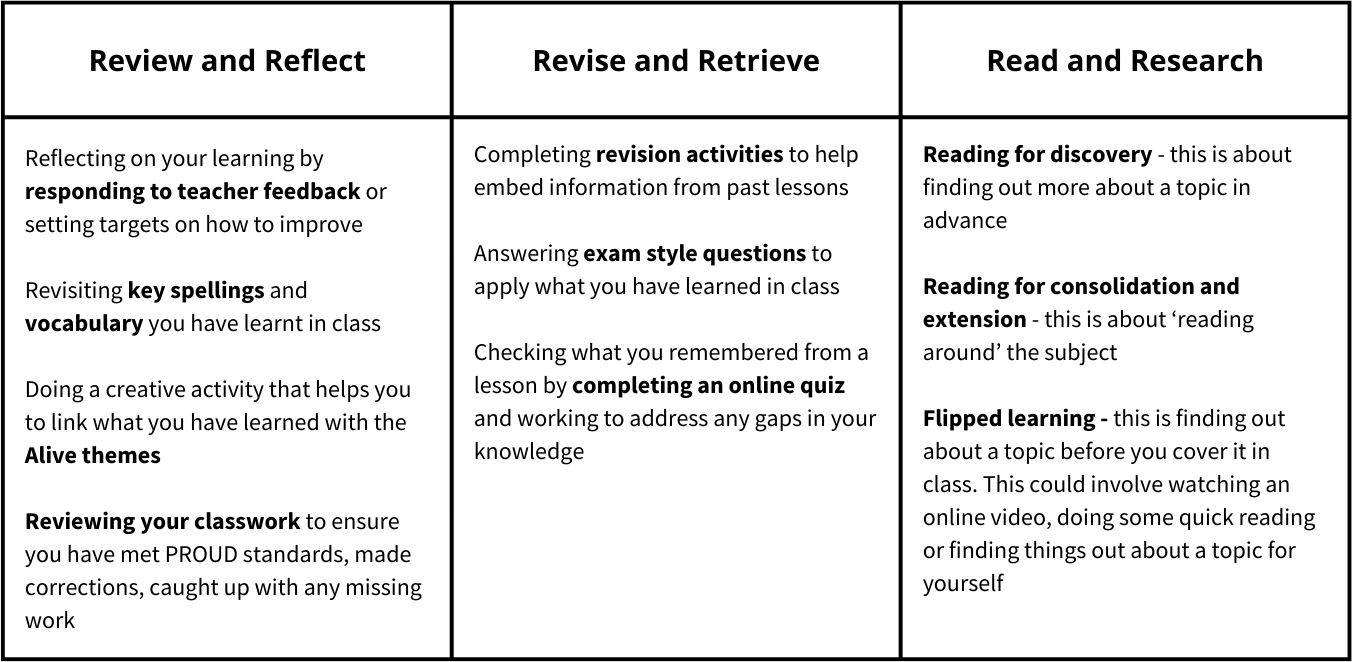Geography Key Stage 3
Vision
To enable students grow into resilient, engaged, independent and interdependent learners that seek to know and understand the world around them and foster a keen sense for the need for environmental stewardship, social justice, respect, tolerance, and the celebration of diversity.
Curriculum Overview
We want to support students in developing a fascination in the human and physical world around them through exploration of a broad range of interlinked geographical themes and places at a range of scales. We also support students in developing confidence in application of a range of skills that they can use in analysing data to help them make sense of the topics they explore.
Sequencing, Setting and Support
At key stage 3, careful thought is put into sequencing our curriculum to enable students to build confidence in the subject and ultimately to thrive in their learning. In year 7, students start with the local context before exploring key themes and more global contexts. Key skills and values introduced in year 7 are revisited in different contexts in both year 8 and 9 to build the foundations for those students that pursue the subject at key stage 4. For instance, map skills learned in year 7 are revisited in both coastal environments in year 8 and economic activity in year 9. We are also careful to provide students with a balance of both physical and human-focused topics to enable them to make connections between the two disciplines.
Students are taught in mixed ability groups, which allows all students to access challenging content.
Teachers know their students well and adapt learning to give students the opportunity to succeed to the best of their ability. This includes providing sentence starters, offering information which requires a lower reading age, visually-support key term lists and offering 1-1 targeted support in lessons.
Alive Themes in Geography
Geography is well-placed to explore a wide range of alive values through the key stage 3 curriculum. Our key alive theme is We are interdependent. This is explored through subject content which investigates the links between people, places and issues across the world. We also explore this value through the route to enquiry completing fieldwork, data collection and group work analysis. The intent of our curriculum is also focused on the value of justice and respect considering our role in stewardship of places at a range of scales. Furthermore, diversity is central to our curriculum not only in ensuring we offer a curriculum that engages our diverse community, but which encourages students to value and celebrate the cultural diversity that our planet offers.
Assessment in Geography
In geography, students are assessed in two key ways.
-
use of in-class and homework-based formative assessment that require students to apply their knowledge and understanding, and to embed the skills learned. For example, students in year 8 are asked to write a speech outlining the vulnerability of Tuvalu to climate change and sea level rise.
-
Use of summative assessments meaning that students are expected to revise and complete assessments independently without help.
Summative assessments are marked using a mark scheme criterion, which is then converted into a percentage that allows ranking of students which then guides our judgement. For example, a 90% score in an assessment, would be ‘Extending +’.
As they move through KS3, students are expected to show a deeper level of knowledge and more complex analysis of the past.
Homework and how Parents/Carers Support Learning
All homework is set on Bromcom which is an app and website available to students and parents/carers. Further information is available on our Homework page.
These are the principles which underpin our homework.

In Geography at key stage 3, homework is principally focused around review and reflect tasks and revise and retrieve tasks. For instance, many of our homework tasks require students to reflect on and apply learning often in creative ways such as building a coastal model or 3D contour map. Other homework tasks require students to review skills by creating and interpreting graphs or revising material for assessments using online quizzes or revision materials provided by the department. Research is also important in preparing students for higher levels in the subject.
Parents can play an active role in helping students to get started with homework, providing them with sources of inspiration, time for planning and in encouraging them to reflect over work to improve before they submit. We also encourage parents to actively encourage students to discuss their learning in the family setting as our curriculum is current, relevant, and engaging and so can really capture student interest. Discussion really helps to embed the learning and develop passion for the subject.
Useful Geography Resources
Geography is everywhere. We actively encourage parents to encourage students to watch the news. At key stage 3, BBC Newsround provides a great platform that is more digestible. National Geographic Kids is also an excellent and visual source of inspiration whilst games such as ‘Globle’ and ‘GeoGuessr’ can really engage. Active engagement with the subject outside the classroom is also something with encourage such as being part of the local wildlife trust as this helps students become advocates for the environmental cause.




